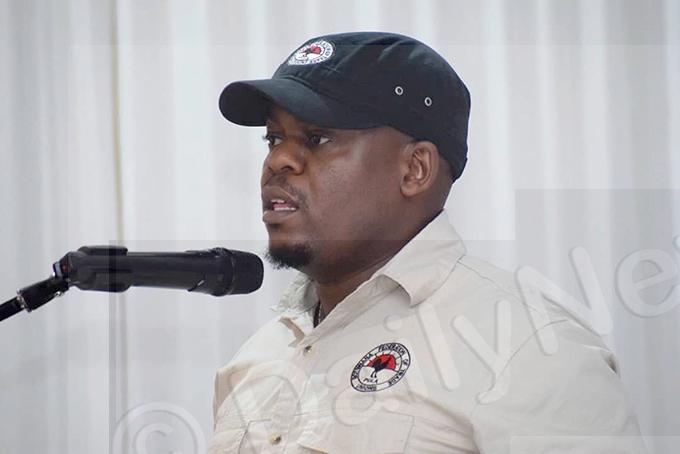AJ CORE researchers exchange information
17 Apr 2024
Researchers from different countries gathered in Maun on April 17 to exchange notes on achievements, challenges, research methods, findings and other insights from the vintage points of projects by individuals, institutions as well as experiences at regional and global level.
The three-day workshop, dubbed Africa-Japan Collaborative Research (AJ CORE) attracted researchers from Japan, South Africa and 17 member countries of the Science Granting Council Initiative.
The AJ CORE is a collective platform between African countries and Japan aimed at leveraging research and innovation to address common challenges.
The meeting is aimed at facilitating knowledge exchange among participants through interactive discussions, identifying and developing pathways to enhance relationship, amongst others.
Officiating at the event, permanent secretary in the Ministry of Communications, Knowledge and Technology, Mr Pontsho Pusoetsile said the meeting marked a significant milestone in their collective pursuit of research excellence and knowledge-generation through strategic partnerships.
The world today, he said, was faced with a myriad of challenges such as hunger, malnutrition, health pandemics, poor sanitation, climate change, global warming and environmental degradation.
He said global indicators showed that Africa still had a long way to go in solving the afore-mentioned problems.
Sustainable Development Goals, he said, presented an optimistic picture of how the world should look like by 2030 while the African Agenda 2062 on the other hand talked to ‘Africa we want’, where everyone enjoys the quality of life.
Furthermore, Mr Pusoetsile revealed that Botswana government envisioned prosperity for all by 2036, adding that the country had also set a target for the economy to be knowledge-based, pointing out that research and innovation were the tools that were being employed to accelerate process.
“It is gratifying that at the core of AJ CORE’s mission lies a commitment to building and connecting knowledge to amplify the impact of research. The programme defines the centrality of the power of partnerships to promote inclusive socio-economic growth and improve the quality of life for our people as research knows no boundaries,” he added.
The collaboration in research between Japan and Africa, he said, could lead to impactful outcomes that benefitted not only the two regions, but also the global research community as a whole.
Mr Pusoetsile acknowledged that collaboration by researchers from the two regions would, without doubt, build capacity of institutions and individuals in both Japan and Africa by sharing best practices, training programmes and resources.
By pooling their expertise, Japan and Africa he said, could tackle common global challenges such as climate change, public health issues and food insecurity more effectively, thereby addressing global challenges.
The joint research projects, he said, were expected to spark innovation and creativity by bringing together different perspectives, approaches and methodologies from Japan and Africa.
“As we look ahead to future collaborations, let us reaffirm our commitment to excellence, inclusivity and sustainability. Together we have the power to effect meaningful change and shape a brighter future for generations to come,” he said.
When welcoming the delegates, Kgosi Oateng Setlhodi of Chanoga appreciated that Maun was chosen as a venue, saying the north western region was rich in cultural heritage, indigenous knowledge and unique ecological species, amongst others, making it an excellent choice for research undertakings.
“We are the home to one of the best centres of research excellence that this country has ever had, the Okavango Research Institute, which undertakes research in different areas including, but not limited to, climate change adaptation, mitigation, environmental conservation and sustainability,” he added.
Kgosi Setlhodi said the research that had been undertaken in the district on environmental sustainability, the thematic area of focus for the workshop, had contributed immensely to the global knowledge and solutions, expressing belief that the gathering would also see more knowledge products that would positively impact on the lives of the community members.
He strongly believed that through research, they could exploit the rich uniqueness of the district, which he said was also known for tourist attraction, adding that, ‘we have also already seen efforts of our people who strive to use indigenous knowledge to develop products and services to better their lives such as traditional cuisine from fish and tswii (water lily), amongst others’.
“Our communities continue to strive to perfect and contribute to sustainable food security, hence the need for extensive research,” he said. Ends
Source : BOPA
Author : Esther Mmolai
Location : Maun
Event : Workshop
Date : 17 Apr 2024





